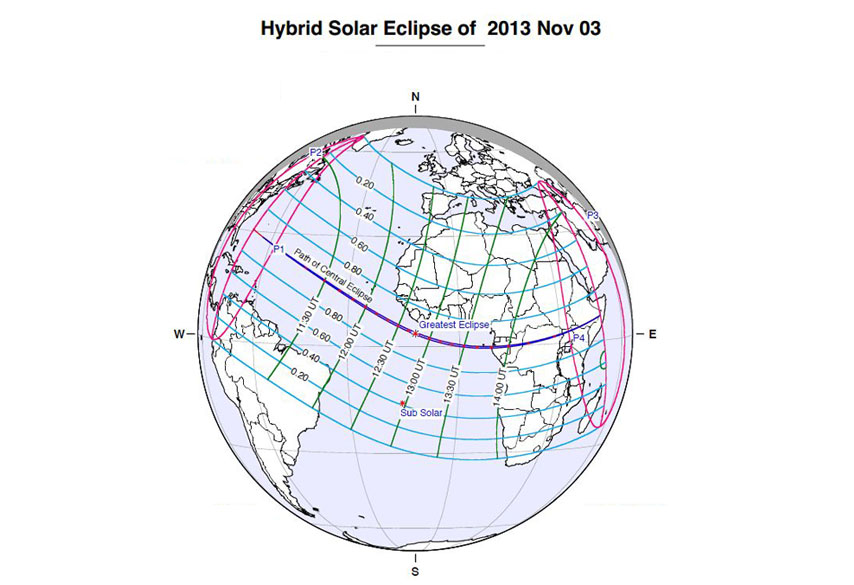TORONTO – Though it won’t be anything near as breathtaking as a total solar eclipse, Eastern Canada will experience a rare hybrid solar eclipse on Sunday.

There are two types of solar eclipses: total and annular.
A total eclipse occurs when the moon blocks out the sun entirely. An annular eclipse is when it only blocks out part of the sun.
But every so often a rare hybrid of the two occurs, where some sections of the path are annular and others are total.
Hybrid eclipses are rare, but this one in particular is even more unusual.
Typically, hybrid eclipses start as annular, change to total and then go back to annular. However, this eclipse’s central path begins as annular and ends total.
The place on the planet where you would see the ‘greatest eclipse’ or (fullest and longest) will occur in the Atlantic about 330 km southwest of Liberia.
When and where
Remember to never look at the sun directly. If you’re hoping to see it, you’ll need a pair of eclipse glasses. Or you can visit the online site, Slooh, which will be airing the total eclipse live.
If you do have eclipse glasses, the eclipse will have started before the sun rises, so you’ll only have a short time to catch it (and remember to set your clocks back on Saturday night before you go to bed so you don’t miss it!)
In Toronto, you have from 6:58 a.m. to 7:11 a.m. In Montreal, the best time would be from 6:29 a.m. to 7:13 a.m.
In Halifax, the eclipse starts around 6:22 a.m. local time. It peaks at 7:16 a.m.
Those in Newfoundland get the longest view with the eclipse starting at 7:02 a.m. It peaks at 7:24 a.m. and ends at 8:49.
So what can you expect to see? You’ll notice a small bit of the sun missing, as though someone took a bite out of it.
So get some rest tonight and try to get up early tomorrow. You can always go back to sleep after the few minutes.


Comments